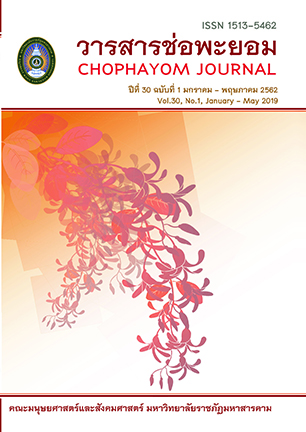The Students’ Competence in Cross-Cultural in International School of Tourism
Keywords:
Competence, Cross-CulturalAbstract
Cultural Competence is a concept about learning proper principles of another culture to be applied to the daily life of people in the era of globalization with cultural and racial diversities. The integration of the ASEAN Economic Community and advances in science and technology are the factors contributing to the increasing of cultural exchanges. These issues may affect human’s way of life, beliefs, attitudes and behaviors towards cultural diversity. The objectives of
this research were: 1) To study the level of students’ competence in cross-cultural in International School of Tourism of Suratthani Rajabhat University and 2) To study the comparison of students’ competence in cross-cultural by characteristics variables. The population was 843 students from International School of Tourism of Suratthani Rajabhat University. The sample for this research was 271 students in Semester II, Academic Year 2016 collected by stratified sampling technique. Questionnaires were used for data collection. Frequency, percentage, mean, standard deviation, t-test, and One-Way-ANOVA were used to analyze the data. The results revealed that: 1) The cross-cultural competency of the sample was found at high level (Mean = 3.80). The highest average level was cultural skill (Mean = 3.93), followed by working as a team across the various cultures (Mean = 3.88), cultural awareness (Mean = 3.84), cross-cultural communication (Mean = 3.80), and cultural knowledge (Mean = 3.54), respectively. 2) The comparative study of cross-cultural competencies by variables gender, age, education level, religion, income, and language used in daily life was found that the mentions variables did not affect the competence in cross-cultural. It could be concluded that male and female, do not have different levels in cross-cultural performance. Keywords : Competence, Cross-Cultural






